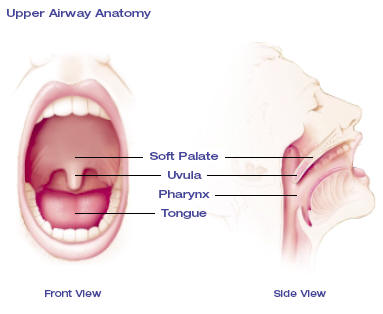
Our Roadmap to Stopping Snoring
Snoring treatments have more than just the ‘power’ to resolve it; they also seem to have the ‘power’ to confuse. Grand claims can often be just that as everyone clamours to be heard. Understanding your snoring and how it could be tied to your lifestyle is often the first step necessary for you to begin tackling the problem, which puts strain on your health and the people around you as it disturbs your own and their sleep. Surgery is, naturally, at the more intense end of the scale of treatments and is treated accordingly by our Clinic, with our experienced team at the forefront of their field.
1. Understand Why You Are Snoring & What Is and Isn’t Helping
Q. What causes snoring?
A. Snoring is caused by vibrations of soft tissue in your head and neck as you breathe in. The offending soft tissue in question could be: nasal passages; soft palate (layer of tissue at the back of the roof of the mouth); base of the tongue; tonsils (two small glands right at the back of the throat before the pharynx) and/or the uvula (a small cone-shaped section of tissue that hangs from the soft palate between your tonsils)

Q. Why do I snore?
A. There are a considerable number of factors involved in snoring. Some help to cause it; whilst others aggravate it. Alcohol consumption, being overweight, stuffy or blocked noses, some sedatives and smoking can all aggravate and increase snoring. Certainly maintaining a healthier lifestyle will improve your health dramatically but it could alleviate and stave away many conditions and problems – most notably your snoring.
2. Knowledge Is Power, Actions Help Too
Q. What shall I do first?
A. Consulting your GP is usually the first step for many conditions, which many don’t take. Snoring is no different. The internet has opened up a world of medical information to terrify us but overall we benefit from this openness as the doctor/patient divide narrows with better education. However, we must be careful. Sorting out what is information and what is misinformation is hard. Look for reputable sources, testimonials, experience, substantiated facts, engagement and the look and feel of a website. A polished, navigable and informative website is a good start.
Q. Is it really going to work?
A. As we have seen from the vast majority of our patients, buying over the counter devices and remedies for snoring are usually the first steps sufferers usually take. As our very own snoring specialist, Professor Kamami, points out, “most of my English patients have tried all these mouth guard devices (sold on internet), not custom made by the dentists, and they are coming for an ENT consultation after the failure of mouth devices.”
Naturally, their efficacy depends on the individual and how much discomfort and cost you are willing to put up with for your health. For those visiting our clinics, on the whole, these ‘solutions’ haven’t worked for them. So a next step is necessary.
3. The Private Clinic
Q. What do you offer?
A. At our clinic we offer 3 treatments: Laser treatment for unblocking the nose; Laser Assisted Uvulopalatoplasty (LAUP) and Bipolar Radiofrequency Thermotherapy (RFITT). Our LAUP procedure was pioneered by Professor Kamami, who explains, “LAUP is practiced all over the world with the FDA approval since 1993 and most of ENT scientific societies are recommending it.”
In the initial consultation you will be assessed and if suitable the right procedure will be explained and recommended to you. If your tongue is causing the snoring, then our treatments will not be suitable. We have plenty more information on our website to help you understand the treatments. Unlike reports, the procedures do not result in voice changes, which occurs infrequently with the UPPP procedure.
Q. Is the treatment painful?
A. The treatments aren’t painful, as they are performed under local anaesthetic, but there is a degree of discomfort. However the procedures are quick so the discomfort does not last for long. The procedures themselves will typically result in a sore throat feeling for a couple of weeks, requiring painkillers. Aside from that there are very few associated side effects from the procedure. After surgery, if you gain weight, the added weight will put added pressure on your airways, increasingly the likelihood of different types of snoring.
The Right Treatment for You
Tackling snoring requires understanding the individual. It is also important to keep in mind our treatments are not panaceas for everyone. Having tried many of the over the counter solutions available and spoken to their GPs, patients come to The Private Clinic understanding that we offer specific medical solutions to snoring but we still turn away 40% of consultations after offering advice. If you believe our snoring treatments could help you, book a consultation with our clinic: https://www.theprivateclinic.co.uk/treatments/snoring/





